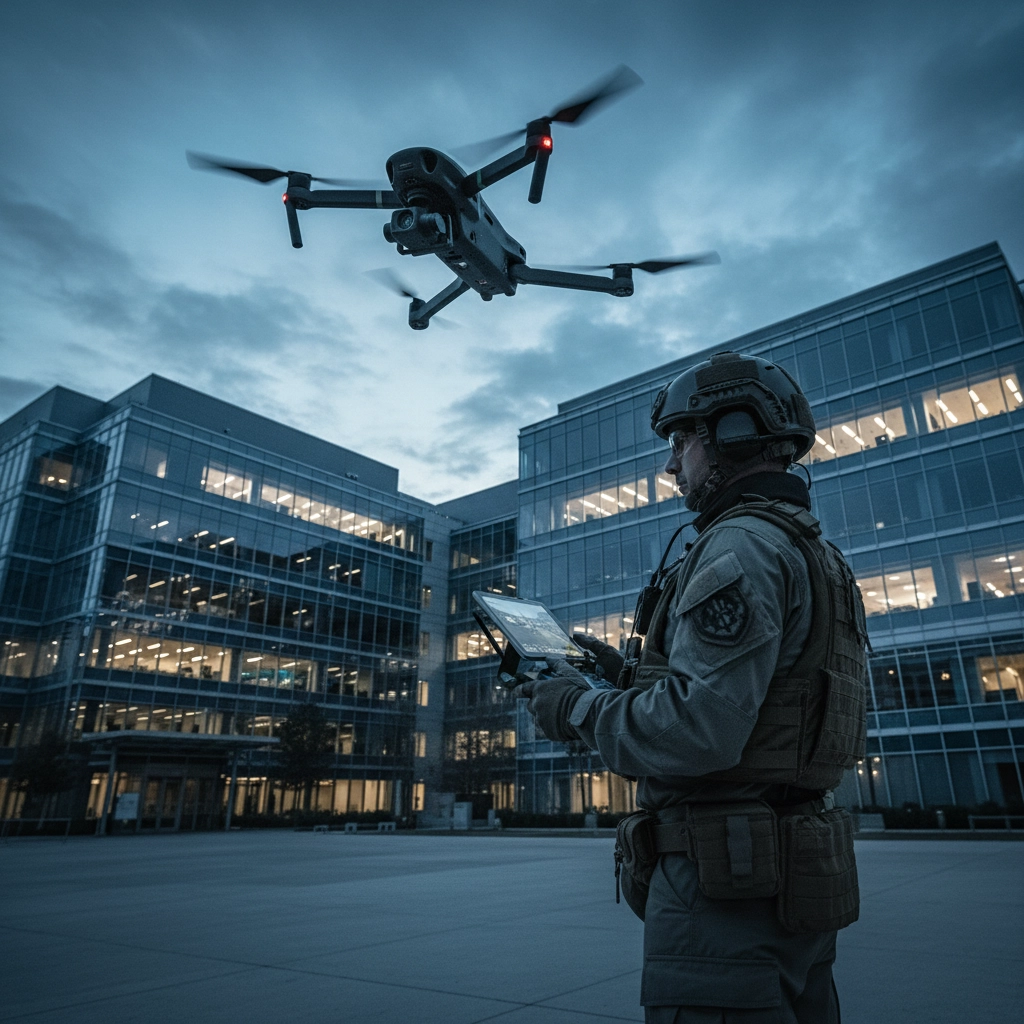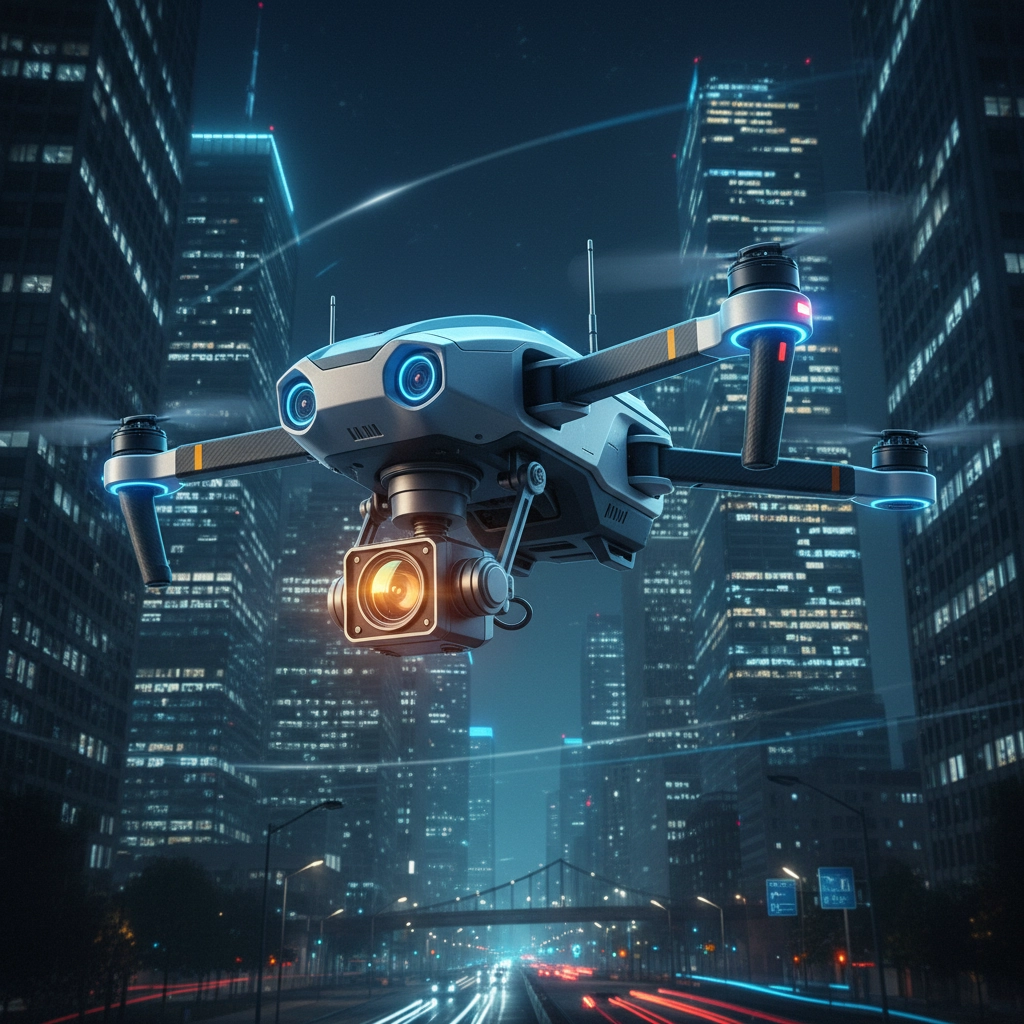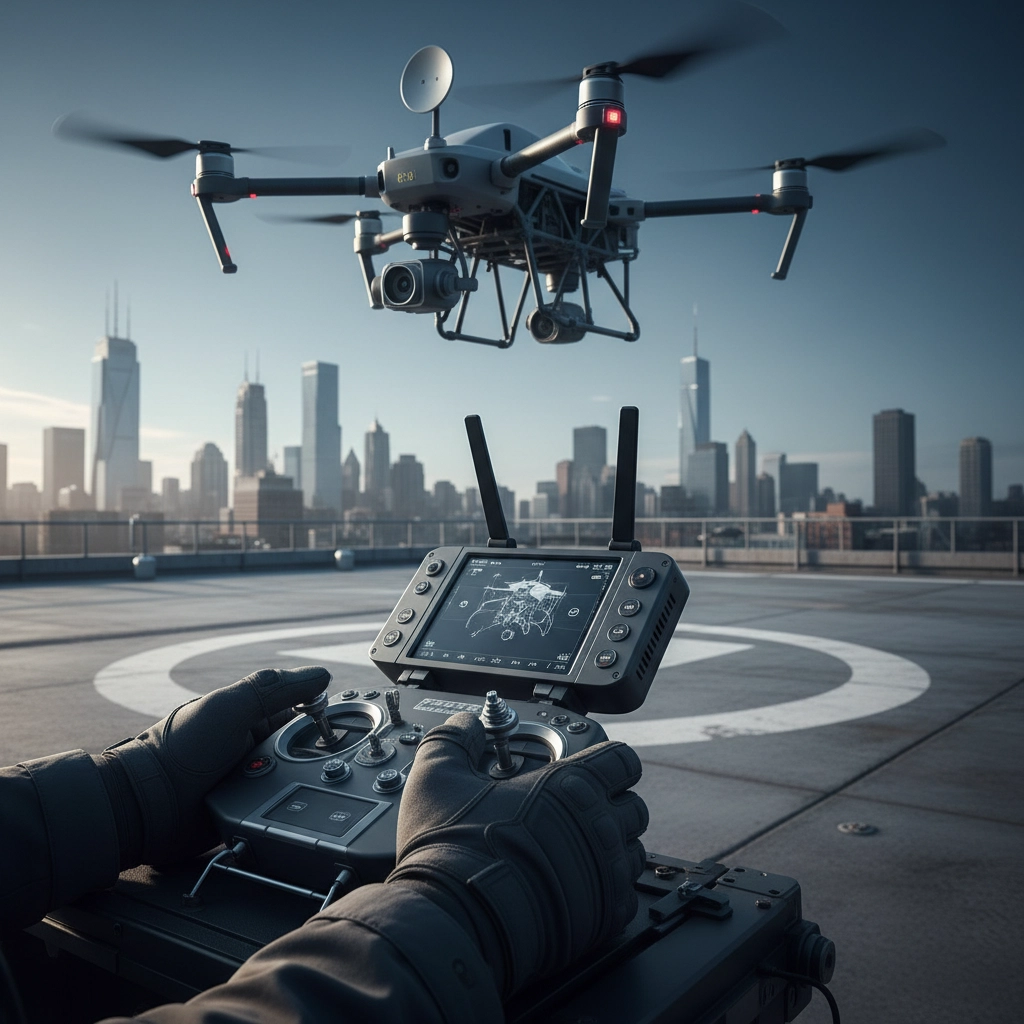Why Everyone Is Talking About Drone Certifications (And You Should Too)
- bouf55
- Sep 15
- 5 min read
The security industry is buzzing about drone certifications, and it's not just hype. With regulatory changes, expanding career opportunities, and growing demand for aerial surveillance capabilities, drone certifications have become essential credentials for modern security professionals. If you're wondering whether this trend is worth your attention, the answer is a resounding yes.
The Regulatory Shift That Changed Everything
The drone landscape transformed dramatically in 2025. New FAA regulations require all drones weighing over 250 grams to be registered, and Remote ID compliance is now mandatory for most operations. These changes aren't just paperwork: they represent a fundamental shift toward professional standards in drone operations.
For security professionals, this regulatory evolution creates both challenges and opportunities. While casual drone use faces more restrictions, certified operators gain significant advantages. Part 107 certification, the gold standard for commercial drone operations, allows security professionals to legally use drones for surveillance, incident response, and facility monitoring.
The certification process itself builds crucial knowledge. Pilots learn airspace management, weather assessment, emergency procedures, and aviation law: skills that directly translate to better security operations. This isn't just about following rules; it's about operating safely and effectively in complex environments.
Drones in Modern Security Operations

Security applications for drones continue expanding rapidly. Certified drone operators can conduct perimeter surveillance, crowd monitoring, emergency response support, and facility inspections. These capabilities provide security teams with aerial perspectives that were previously expensive or impossible to obtain.
Consider practical applications: monitoring large events, conducting security assessments of industrial facilities, or providing real-time surveillance during emergency situations. Drones equipped with thermal cameras can detect intruders in complete darkness, while high-resolution cameras provide detailed documentation of incidents or security vulnerabilities.
The technology advantages are compelling, but certification ensures these tools are used legally and safely. Uncertified operators face significant liability risks and legal restrictions that limit their effectiveness in professional security environments.
Career Opportunities in Security Drone Operations
The intersection of security and drone technology creates numerous career paths. Security companies increasingly seek professionals who combine traditional security expertise with drone operation skills. This combination commands premium salaries and opens doors to specialized roles.
Certified security drone operators work in various sectors: corporate security, law enforcement support, private investigation, emergency response, and critical infrastructure protection. Many professionals use drone certification as a stepping stone to advance within existing security roles or transition to specialized positions.
The certification also provides credibility with clients and employers. Being able to demonstrate FAA certification immediately establishes professional competence and regulatory compliance: crucial factors in security contracting and employment decisions.
Training Requirements and Certification Process

Obtaining drone certification requires focused preparation, but the process is straightforward for motivated professionals. Part 107 certification involves studying aeronautical knowledge, regulations, and operational procedures, followed by passing a written examination.
Key study areas include:
Federal Aviation Regulations
Airspace classification and restrictions
Weather effects on drone operations
Radio communications procedures
Emergency and abnormal procedures
Maintenance and preflight inspection procedures
The examination covers practical scenarios security professionals encounter: operating near airports, understanding weather limitations, managing airspace restrictions, and handling emergency situations. This knowledge directly applies to real-world security operations.
Preparation typically requires 20-40 hours of study, depending on your aviation background. Online courses and study materials make preparation efficient and focused on passing the examination while building practical knowledge.
Practical Tips for Getting Started
Begin with clear goals. Determine whether you need basic recreational certification (TRUST) or commercial certification (Part 107) based on your intended applications. Security professionals typically benefit from Part 107 certification due to its operational flexibility and professional credibility.
Choose quality study resources that focus on practical applications rather than just passing the test. Understanding concepts like airspace restrictions, weather limitations, and emergency procedures is crucial for safe operations in security environments.
Practice with flight simulators or training drones before operating expensive equipment. Many certification programs include hands-on training that builds confidence and practical skills alongside theoretical knowledge.

Consider specialized training for security applications. Standard drone certification covers general operations, but security-specific training addresses unique challenges like evidence collection, privacy considerations, and coordination with law enforcement.
Advanced Capabilities for Security Professionals
Certified operators can pursue advanced authorizations that expand operational capabilities. Night flying waivers allow 24-hour security operations, while beyond visual line of sight (BVLOS) authorizations enable extended surveillance coverage.
These advanced capabilities require additional training and documentation, but they provide significant operational advantages. Security operations often occur outside normal business hours or cover large areas where standard drone limitations would be restrictive.
The Low Altitude Authorization and Notification Capability (LAANC) system provides near real-time airspace access in controlled areas. This capability is particularly valuable for security operations near airports or in urban environments where airspace restrictions would otherwise limit operations.
Technology Integration and Equipment Considerations
Modern security drones integrate sophisticated technology: thermal imaging, facial recognition, automated tracking, and real-time data transmission. Certified operators understand how to use these capabilities within regulatory constraints and operational requirements.
Equipment selection depends on specific security applications. Surveillance operations might prioritize camera quality and flight time, while emergency response applications might emphasize portability and quick deployment capabilities.
Understanding payload limitations, flight time constraints, and environmental factors helps security professionals select appropriate equipment and plan effective operations. This knowledge comes from both certification training and practical experience.
Industry Trends and Future Outlook

The security drone market continues expanding as costs decrease and capabilities improve. Artificial intelligence, automated tracking, and enhanced sensors create new possibilities for security applications while regulatory frameworks evolve to accommodate these advances.
Swarm operations, where multiple drones work coordinately, represent an emerging capability for large-scale security operations. While current regulations limit these applications, certified operators position themselves to adopt new capabilities as they become available.
Integration with existing security systems: cameras, alarms, access control: creates comprehensive security solutions that leverage drone capabilities within broader operational frameworks. This integration requires understanding both drone operations and traditional security systems.
Building Your Certification Strategy
Start with a realistic assessment of your current knowledge and career goals. Security professionals with aviation background may need less preparation time, while those new to aviation concepts should plan for more comprehensive study.
Connect with other certified operators in the security industry. Professional networks provide practical insights about equipment selection, operational challenges, and career opportunities that formal training might not address.
Consider specialized security training that combines drone certification with security-specific applications. This integrated approach builds both regulatory compliance and practical skills needed for professional success.
Plan for ongoing education. Drone technology and regulations continue evolving, requiring certified operators to stay current with new developments, equipment capabilities, and regulatory changes.
The conversation about drone certification isn't just industry chatter: it reflects fundamental changes in how security operations leverage technology while maintaining safety and regulatory compliance. For security professionals ready to enhance their capabilities and advance their careers, drone certification represents a strategic investment in professional development.
Whether you're seeking to expand current security roles or transition to specialized drone operations, certification provides the foundation for safe, legal, and effective use of this powerful technology. The question isn't whether drone certification is worth pursuing, but whether you can afford to overlook this growing opportunity in modern security operations.

Comments